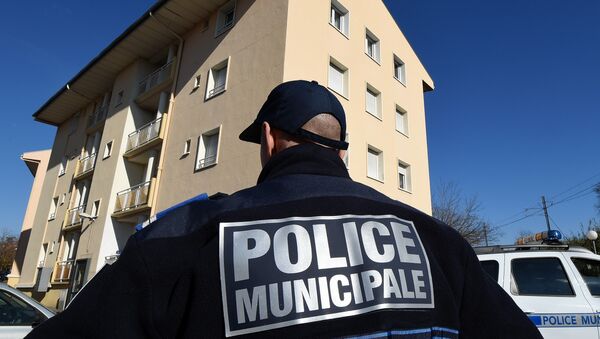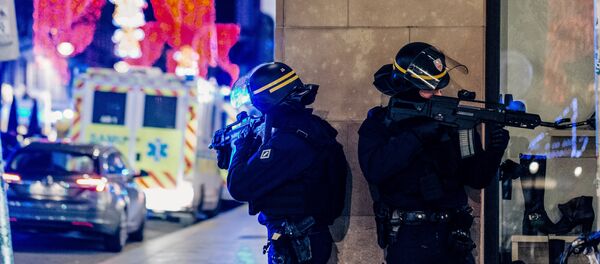On Tuesday night, a man opened fire near the Christmas market in Strasbourg. According to the latest information, the shooter has been identified as a 29-year-old local resident, Cherif Chekatt, previously known to security officers due to numerous criminal charges and who also had been on a watch list of possible extremists. He was killed on Thursday following a police manhunt that involved 720 officers.
Low-Cost Terror Attacks Will Repeat Themselves
"We see a certain profile of jihadists in France. They have not been to Syria, they were convicted, served prison time, have been radicalised there or elsewhere… Every four months there is one who alone, or with a little group of people behind him, stages an attack. And I hardly see what can be done against it. We have some 10,000 radicalised elements identified, plus those who are not identified yet. So even statistically, there is a high chance this will repeat from time to time. And clearly, they are not discouraged by a failure of ISIS [Daesh*]… For now, it’s likely that Strasbourg-like attacks will repeat", Huyghe said.
READ MORE: Brother of Suspected Strasbourg Shooter Detained in Algeria — Reports
People returning from Syria present another problem since they are capable of organizing more centralised attacks, like the in Paris back in November 2015, the researcher noted.
"They fought there, some served prison time, some will get out soon – clearly those have not been identified yet. And those people know how to fight. And there is a risk of them staging a more organized attack … This is a ‘tail’ of ISIS. It’s hard to say what’s in their heads; they all have hatred of France, of the Western world, secularism etc. On the other hand, the [Daesh] organisation has vanished;… it’s hard to find their propaganda, they don’t have their territory, and have much fewer means, but then there is a hypothesis that al-Qaeda* which is in full strength, organizes something at the French territory", Huyghe added.
Maintaining High Level of Security is Costly and Exhausting
"It’s a trap for the European democracies. We cannot live under a permanent state of emergency. We do not have the means, to begin with, then the policemen have been exhausted since 2015, it’s been almost four years [of mobilization]. We cannot support this security level on an everyday basis. We need to find other ways", Kader Abderrahim, an Interdisciplinary Research Institute on Social Issues (IRIS) research fellow specializing in Islamism and a lecturer at Sciences Po University, said.
Huyghe shares the same view, saying that "we cannot mobilize 10,000 soldiers and thousands of policemen for a guy who every four-five months comes out with a gun".
Dealing With Problem, Not Consequences
Abderrahim argued that the repeated attacks in Europe are the consequence of the European Union's military involvement in the Middle East. He believed that France had to deal with the real problem, rethinking its foreign policy, which had so far resulted in the destabilisation of the Middle East, unprecedented migration to Europe and a large number of radicalised people living on its territory.
"The most important question is how can we indefinitely eliminate this terrorist threat. We have to take initiative, we cannot stay passive. For this, we need to establish new public and diplomatic policies to avoid confronting terrorism. We need to question French foreign politics of the past 30 years. Taking part in military operations in the Middle East, Africa or Sahel does always have consequences. We see them in Libya for example. We see that the war in the Gulf in 1991 provoked an eruption of Islamist movements and the creation of al-Qaeda," he reminded.
READ MORE: 'I Shot the Sheriff' Aired in TV Report on Dead Strasbourg Gunman Cherif Chekatt
The researcher noted that Paris had to stop taking part in military interventions in foreign countries that ultimately cause migration flows and spark extremism.
"Today we are facing migrant influx that we cannot control precisely because of the wars and instability we provoked nearly everywhere in the Middle East: Afghanistan, Syria, Iraq, Turkey, Libya, Mali, Niger, Nigeria, Sudan… We always need to think twice before a military intervention about the consequences it might have on us and on our everyday life. We see them now, so I think that France and other states, notably the United States, must stop intervening in conflicts in which we know we can change nothing. The proof is Libya, which today is a real chaos, in both institutional and security dimensions," Abderrahin said.
The expert believed that the problem of eliminating the threat of repeated attacks in Europe lay on politicians and not security officers.
Views and opinions expressed in the article are those of the speakers and do not necessarily reflect those of Sputnik.
*Daesh (also known as ISIS/ISIL/IS) and al-Qaeda are terrorist organisations banned in Russia






